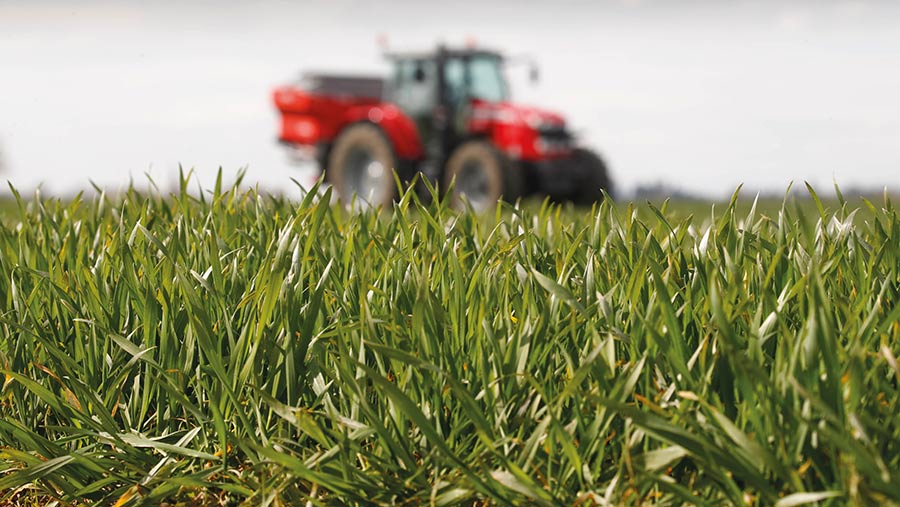Groundswell debates how to eliminate fossil-fuel fertilisers
 © Tim Scrivener
© Tim Scrivener Nature Friendly Farming Network chair Martin Lines suggested at Groundswell that any fossil-fuel based fertiliser should be taxed to incentivise farmers to remove them from their systems.
“We cannot continue using fossil-fuel based products,” he told an audience at a seminar titled “The end is nigh for nitrogen”.
See also: How a living mulch can help farmers cut their fertiliser bill
“We need to tackle our nature and climate crisis and farm in ways that do that,” he said. “Fossil-fuel based nitrogen fertiliser needs to disappear, it’s going to get a carbon tax, so if you continue to use it, you’re going to come under a crunch in a few years.”
On his farm, Mr Lines is in year one of a five-year programme to move away completely from fossil fuel-based fertilisers.
“We’re stacking up the data and technology available to understand what’s in our soils, where it is and when it might be available, while building a farming system that is constantly building nutrition back into the crop,” he said.
Legumes
Clover and legume-containing cover crops are being used to build fertility in soils, while he has also introduced livestock, starting with sheep, but with an aim to also have cattle on what traditionally was an arable-only farm.
Technology is being used to help understand nitrogen availability and crop need.
“For the past few years we’ve been doing soil sampling in the spring to understand what zone nitrogen is available, because if it is all hidden at 60cm or 90cm and I’ve drilled a spring crop, that may be a little hungry and need a little something to get it going until it gets its roots down. But if it is all at the top, it might not need it.”
Soil sampling and satellite imagery have also helped him use variable-rate applications, with hand-held testing of leaves and tissue testing starting this year to further inform requirements.
“What we’ve found is half of my wheats have needed no nitrogen this season,” he said.
Organic manures had been applied over the past five years, but understanding when that was available to the crop was important, he noted. “It doesn’t give it all straight away.”
The visual look of his crops was changing. “We’ve still applied full rates on a couple of trial plots, which look stunning and dark green, while my other bit looks paler.
“But they’ve got the same ear counts. We’ve got to change our mindsets about the visual look.”
The zero-nitrogen areas have less disease and weed pressure, creating a saving.
He is also able to compare with areas that have received 60kg N/ha, which again up to ear emergence had looked visually better. “But after ear emergence it has all evened up, and we can’t now tell the difference,” he said.
Low protein milling wheat?
Restrictions on nitrogen use in Denmark had to be partially reversed as it became difficult to grow breadmaking wheat in the country, according to session chair Alastair Leake, director of policy and the Allerton Project for the Game and Wildlife Conservation Trust.
With Martin Lines growing breadmaking wheat varieties, Dr Leake asked how his changes would affect milling quality.
“We quite often make the mark,” Mr Lines said. “The millers say they want 13%, but often are quite happy to take at 12.4-12.5%.
“This year, we’ve introduced the Wakelyn’s YQ variety, and apparently if I can get 10.5% protein, they can mill with it. So my question back to the millers is, if they can do it with 10.5% and build from there, why are we having to chase 13%? It’s the wrong input system.”
Dr Leake pointed out that the Chorleywood baking process was associated with high-protein wheats, but consumers were increasingly turning to denser-grain loaves. “Are we unnecessarily fertilising,” he asked.
“Yes,” Mr Lines said. “We’ve got a system that’s driving the wrong outputs, and we need to drive artificial nitrogen from the system. So we need to engage with the millers to change their system.”

